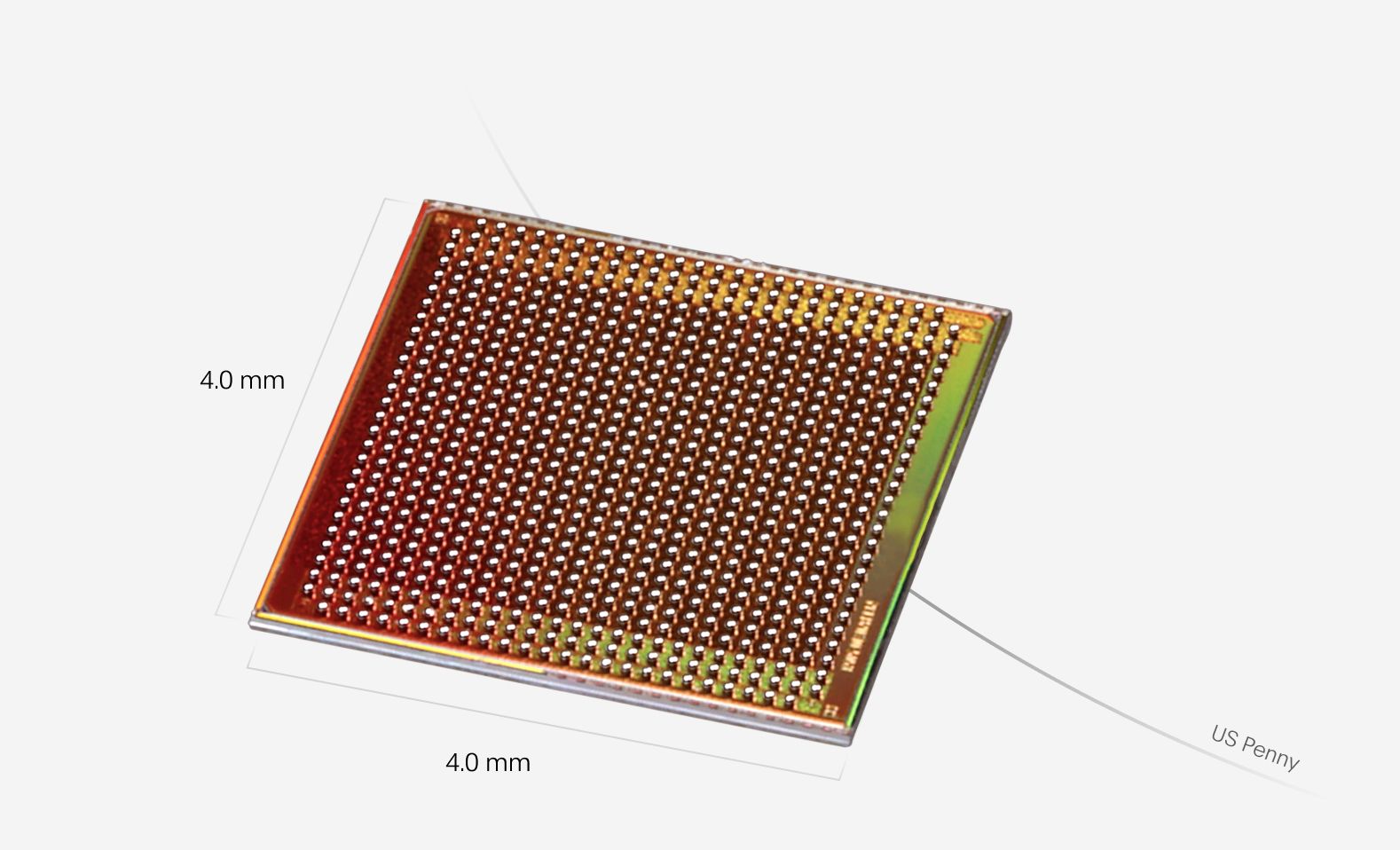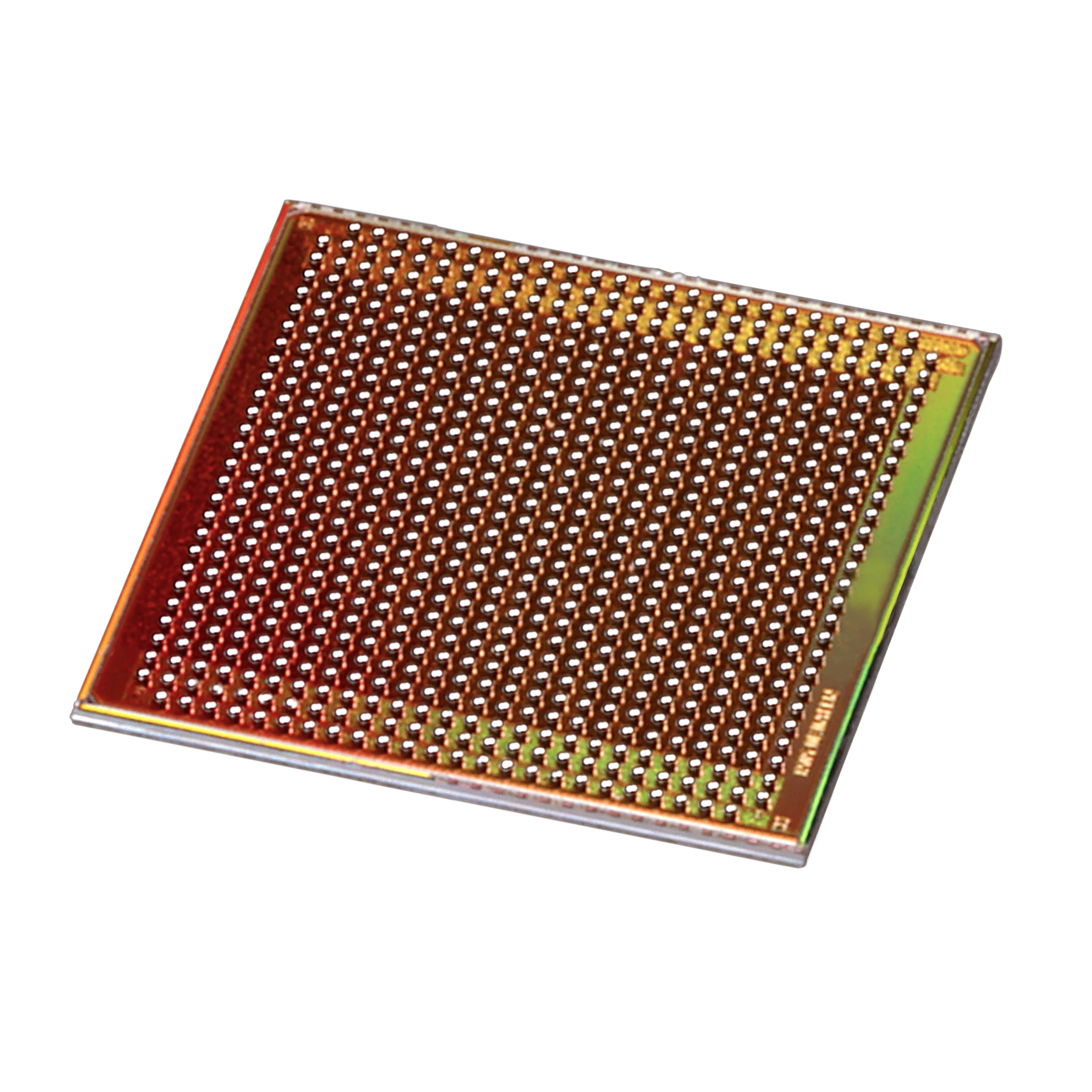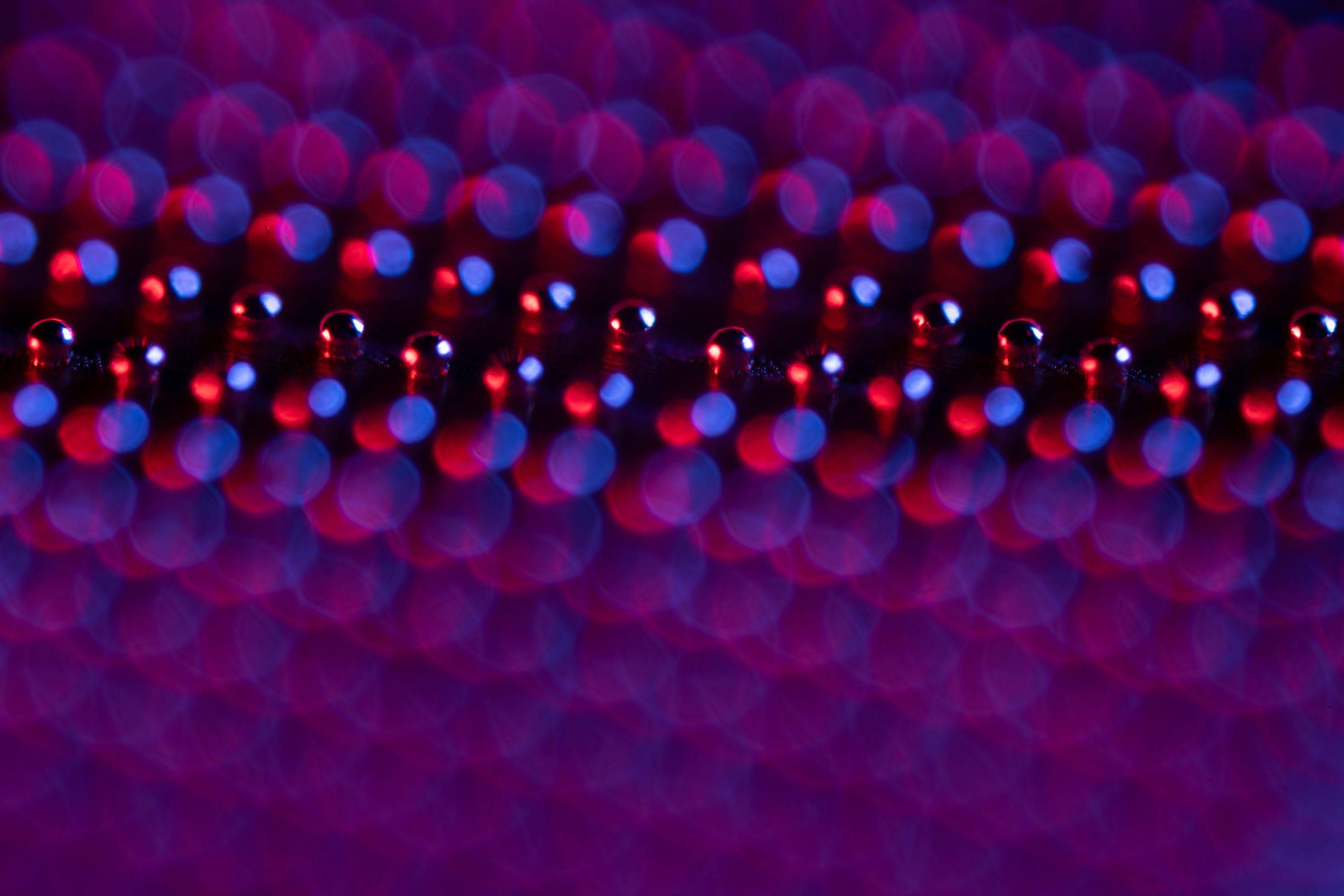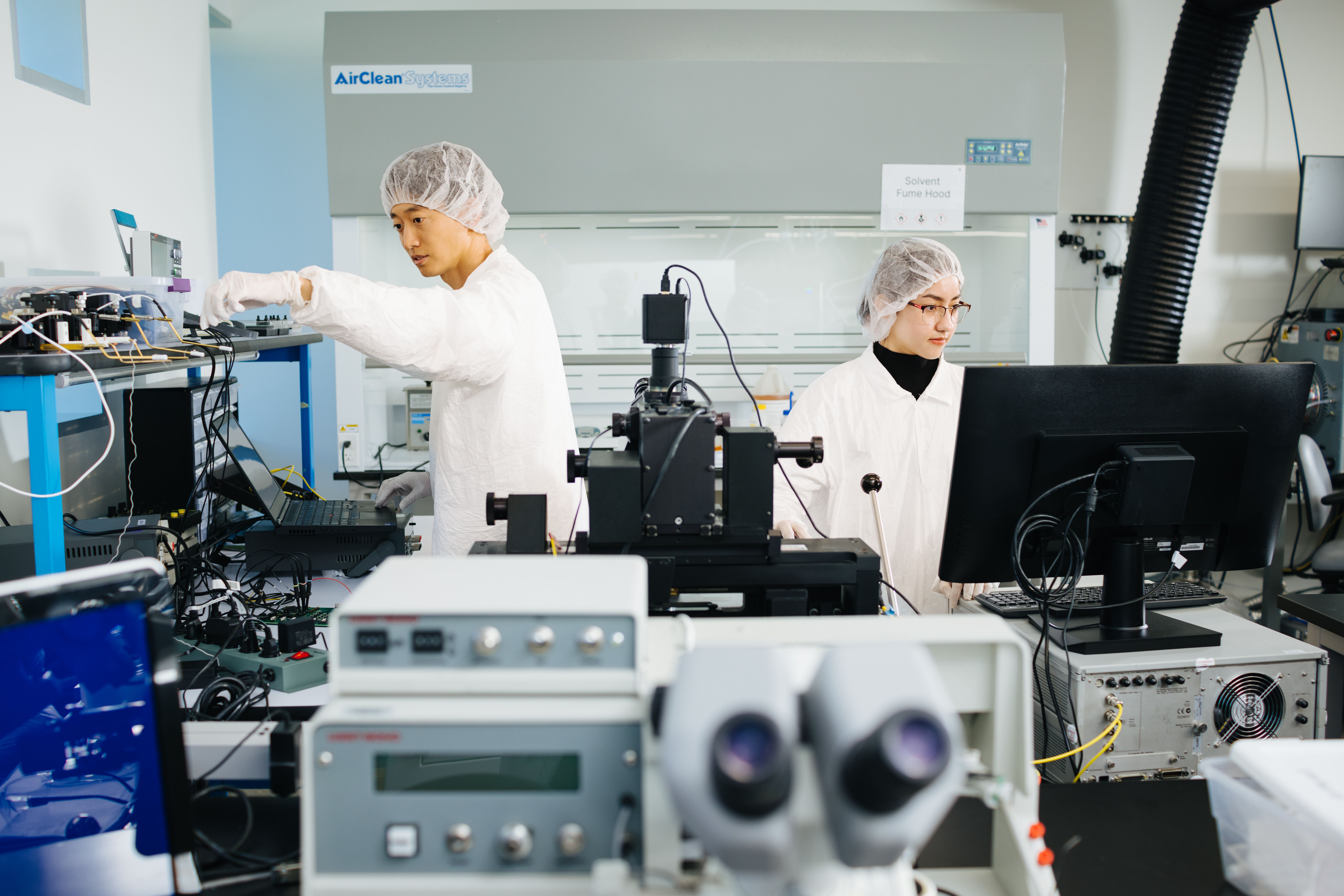Package

-
Copper Bumps
This package has 28 Rows x 26 Columns of Cu-bumps.
-
Uniform Pitch
A uniform pitch of 140 μm in both X and Y directions for a consistent array.
-
Dimensions
4.0 mm x 4.0 mm
Electrodes and Nixel Array
-
Programmability
256 fully configurable and programmable recording channels; set your own recording speed, resolution, and bandwidth.
-
Nixels to Neurons
1:1 ratio
-
Input referred noise
4.5 µV rms corresponding to a maximum gain of 200 V/V.
Architecture
-
LNA parameters
- Input referred noise: 4.5 µV rms
- Gain: 13-200 V/V
- High- and Low-pass corner
-
ADC parameters
- Default Mode
- High-Resolution Mode
- Ultra-High-Resolution Mode
-
Sample-and-hold
Ping-pong architecture with dual analog memory



